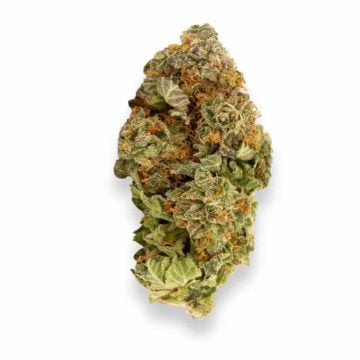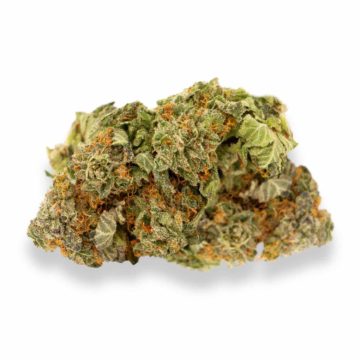
Is Recreational Weed Legal in Nevada
In this article, we will delve into the current legal status of recreational weed in Nevada. We’ll provide a comprehensive overview of the regulations surrounding recreational cannabis, including its history, possession limits, purchasing options, growing guidelines, public consumption rules, medical marijuana considerations, economic impact, and future prospects.
This post is intended as information and for general knowledge only. It is not a substitute for medical advice, diagnosis, or treatment. It is recommended that you talk to a healthcare professional about this before introducing cannabinoids into your daily routine (especially if you have been diagnosed with any medical conditions or are under any medication). It is not recommended to drive or operate any machinery when using cannabis- or hemp-derived products. Use responsibly!
Overview of Recreational Weed Legalization in Nevada
Brief History of Recreational Weed Legalization
Nevada has been at the forefront of marijuana law reform. The journey toward recreational marijuana legality began with the approval of medical marijuana in the state. This paved the way for a broader conversation about the benefits and potential risks associated with recreational marijuana use. Ultimately, in 2016, Nevada voters approved the Nevada Regulation and Taxation of Marijuana Act, making it legal for adults aged 21 and over to possess and use recreational cannabis.
Key Laws and Regulations
The Nevada Revised Statute outlines the intricate web of regulations that govern recreational marijuana use in the state. This statute encompasses rules related to possession limits, purchasing restrictions, cultivation guidelines, and public consumption. The establishment of the Cannabis Compliance Board further solidified the regulatory framework for the marijuana industry, ensuring adherence to state laws.
Possession and Use of Recreational Weed
Legal Age for Purchasing and Possessing
In accordance with Nevada law, individuals must be at least 21 years old to purchase and possess recreational marijuana products. This aligns with the legal age for alcohol consumption in the state.
Amount of Weed Allowed
Recreational users are permitted to possess up to one ounce of marijuana flower or up to one-eighth of an ounce of concentrated marijuana. This reasonable possession limit allows for personal use while curbing potential abuse.
Permitted Places for Use
While recreational cannabis use is legal in Nevada, public consumption is restricted. Individuals can enjoy marijuana products within the confines of their private residences or at specially designated consumption lounges.
Purchasing Recreational Weed
Licensed Dispensaries

Across cities like Las Vegas, North Las Vegas, and Carson City, licensed dispensaries offer a wide array of recreational cannabis products. Establishments like the Thrive Cannabis Marketplace provide a regulated and safe environment for purchasing various marijuana products.
Purchase Requirements
To make purchases at these dispensaries, individuals need to present a valid government-issued ID proving their age and residency. While medical marijuana cards are not mandatory for recreational users, they can offer certain advantages.
Purchase Limits
Recreational users are subject to purchase limits to prevent excessive buying and potential black market activity. Typically, individuals can buy up to one ounce of marijuana flower or up to one-eighth of an ounce of marijuana concentrate during a single transaction.
Growing Recreational Weed
Personal Cultivation Laws
Nevada law permits individuals to cultivate recreational marijuana for personal use. This provision allows residents to have more control over the quality and source of their cannabis products.
Number of Plants Allowed
Each Nevada household is allowed to grow up to six cannabis plants for personal use. However, these plants must be cultivated within an enclosed and secure space that is not visible to the public.
Guidelines for Home Cultivation
For those interested in growing their own cannabis, adherence to guidelines is crucial. Following these guidelines ensures that individuals operate within the boundaries of the law, promoting responsible and legal cultivation practices.
Public Consumption and Driving Regulations
Laws on Public Consumption
While private consumption is permitted, public consumption remains illegal. Engaging in recreational cannabis use in public spaces can result in legal consequences, similar to public alcohol consumption.
DUI Regulations
Driving under the influence of marijuana is treated with the same seriousness as driving under the influence of alcohol. Nevada law specifies impairment thresholds, and drivers found above these limits can face penalties ranging from fines to license suspension.
Medical Marijuana Regulations
Recreational vs. Medical Marijuana
It’s important to differentiate between recreational and medical marijuana use. Medical cannabis is intended for individuals with specific medical conditions, while recreational use is for personal enjoyment.
Qualification for Medical Use
To qualify for medical marijuana use, individuals must have a valid medical condition as outlined by Nevada’s medical cannabis program. Obtaining a medical marijuana card provides access to a broader range of products and can also offer protection in certain legal situations.
Patient Rights and Limitations
Registered medical marijuana patients have the right to purchase and possess higher quantities of cannabis products. However, these rights are subject to limitations outlined in Nevada law.
Impact on Economy and Taxation
Economic Benefits
The legalization of recreational marijuana has brought significant economic benefits to Nevada. Job creation within the industry, as well as increased tourism due to the allure of legal cannabis, has contributed positively to the state’s economy.
Tax Structure
The taxation of marijuana sales in Nevada involves excise taxes and other levies. These taxes contribute to state revenue, which is allocated to various sectors, including education and public health initiatives.
Use of Tax Revenue
Tax revenue generated from marijuana sales has been put to good use. The funds are directed toward programs such as education, substance abuse prevention, and behavioral health services, benefiting both residents and visitors.
Future Outlook and Challenges
Potential Legal Developments
The landscape of recreational cannabis laws is not static. Future developments could include amendments to existing regulations, expansion of product offerings, and adjustments to possession limits.
Ongoing Challenges
Despite the progress made, the legal marijuana industry in Nevada faces ongoing challenges. Federal restrictions and banking issues continue to create hurdlesfor businesses operating within state laws.
Public Opinion and Legislative Changes
As public perception of marijuana evolves and attitudes change, legislative changes are possible. Public opinion plays a role in shaping the trajectory of marijuana laws, potentially leading to more lenient regulations.
Conclusion
Staying well-informed about the evolving legal landscape of recreational weed in Nevada is essential for individuals to navigate the regulations responsibly. By understanding the rules governing possession, purchasing, cultivation, consumption, and more, both residents and visitors can engage with cannabis in a lawful and compliant manner, contributing to the ongoing development of the state’s marijuana industry. As Nevada continues to blaze a trail in the realm of recreational marijuana use, maintaining a balance between personal freedom and responsible consumption remains paramount.















